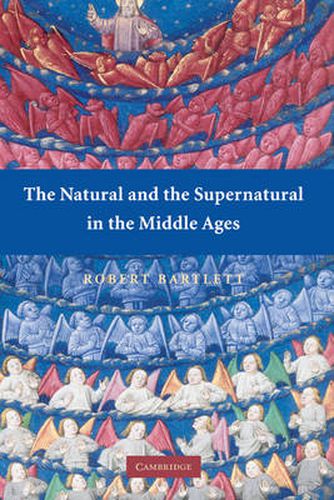Readings Newsletter
Become a Readings Member to make your shopping experience even easier.
Sign in or sign up for free!
You’re not far away from qualifying for FREE standard shipping within Australia
You’ve qualified for FREE standard shipping within Australia
The cart is loading…






How did people of the medieval period explain physical phenomena, such as eclipses or the distribution of land and water on the globe? What creatures did they think they might encounter: angels, devils, witches, dogheaded people? This fascinating book explores the ways in which medieval people categorized the world, concentrating on the division between the natural and the supernatural and showing how the idea of the supernatural came to be invented in the Middle Ages. Robert Bartlett examines how theologians and others sought to draw lines between the natural, the miraculous, the marvelous and the monstrous, and the many conceptual problems they encountered as they did so. The final chapter explores the extraordinary thought-world of Roger Bacon as a case study exemplifying these issues. By recovering the mentalities of medieval writers and thinkers the book raises the critical question of how we deal with beliefs we no longer share.
$9.00 standard shipping within Australia
FREE standard shipping within Australia for orders over $100.00
Express & International shipping calculated at checkout
How did people of the medieval period explain physical phenomena, such as eclipses or the distribution of land and water on the globe? What creatures did they think they might encounter: angels, devils, witches, dogheaded people? This fascinating book explores the ways in which medieval people categorized the world, concentrating on the division between the natural and the supernatural and showing how the idea of the supernatural came to be invented in the Middle Ages. Robert Bartlett examines how theologians and others sought to draw lines between the natural, the miraculous, the marvelous and the monstrous, and the many conceptual problems they encountered as they did so. The final chapter explores the extraordinary thought-world of Roger Bacon as a case study exemplifying these issues. By recovering the mentalities of medieval writers and thinkers the book raises the critical question of how we deal with beliefs we no longer share.